
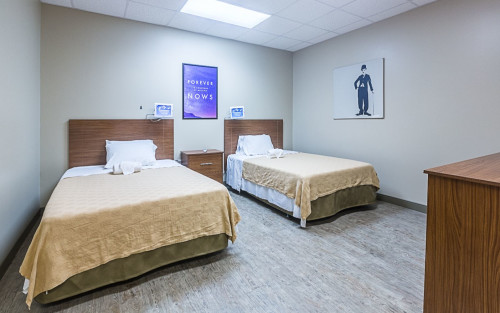
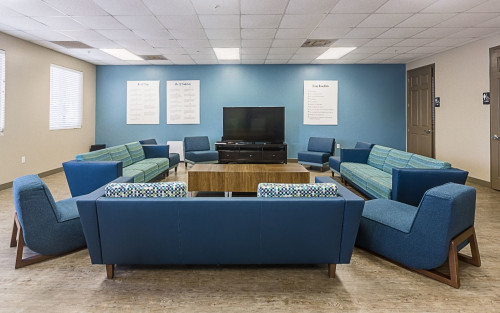
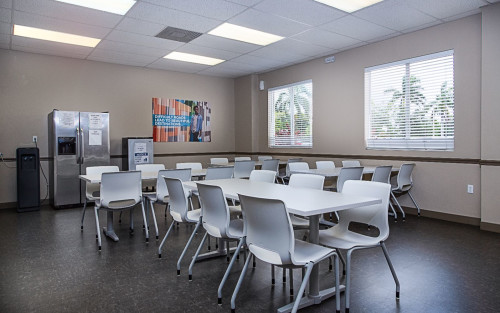





Recovery First Treatment Center
Verified Center
This provider's information has been quality-checked by Recovery.com's Research Team for accuracy and completeness, including center verification through appropriate third-party organizations.
Treatment Focus
This center treats substance use disorders and co-occurring mental health conditions. Your treatment plan addresses each condition at once with personalized, compassionate care for comprehensive healing.
Primary Level of Care
Offering intensive care with 24/7 monitoring, residential treatment is typically 30 days and can cover multiple levels of care. Length can range from 14 to 90 days typically.
Treatment Focus
This center treats substance use disorders and co-occurring mental health conditions. Your treatment plan addresses each condition at once with personalized, compassionate care for comprehensive healing.
Primary Level of Care
Offering intensive care with 24/7 monitoring, residential treatment is typically 30 days and can cover multiple levels of care. Length can range from 14 to 90 days typically.
Provider's Policy
Recovery First accepts many insurances to help cover the costs of addiction treatment. If Recovery First is in-network with the company that carries your insurance policy, at least some of your treatment costs will be covered.
Recovery First Treatment Center
Recovery First Treatment Center
About Recovery First Treatment Center
Recovery First Treatment Center serves the Miami–Fort Lauderdale area with small, personal groups where clients feel seen, heard, and supported. Clients can begin with medical detoxification and continue through inpatient residential care, partial hospitalization (PHP), or an intensive outpatient program (IOP), offered in day, evening, or virtual sessions. Care supports co-occurring mental health conditions, with specialty programs for veterans and first responders, healthcare professionals, and methadone detoxification.
Practice Recovery for Daily Life
Recovery First focuses on building day-to-day recovery skills patients can use outside treatment, like managing cravings, regulating emotions, and strengthening decision-making for relapse prevention. Structured group and individual sessions use methods like cognitive behavioral therapy (CBT) and dialectical behavior therapy (DBT) to improve coping and accountability. Patients can also address family dynamics through family therapy and reinforce progress with wellness practices like mindfulness and yoga.
Build Stability Through Community Living
Recovery First offers apartment-style living that supports real-life routines alongside treatment. Patients share comfortable common spaces and practice stability through daily structure, including meals and community responsibilities. The campus includes areas for recreation and connection, a fitness center for movement and stress relief, and dedicated meditation spaces for grounding between sessions. These amenities help patients reset habits, rest, and stay engaged in care.
Stay Engaged in Ongoing Recovery
After inpatient residential care, patients can step down to PHP or IOP, with discharge planning that connects them to therapy, recovery meetings, and community support. Alumni can stay engaged through the Community of Alumni Recovering Everywhere (CARE) program with weekly support meetings, special events, and ongoing resources. The Connections app adds continued accountability through secure, private messaging with support staff, peer connection, and recovery tools that reinforce relapse prevention.

Highlights from the Center
Highlights
These highlights are provided by and paid for by the center.
Medically Assisted Detox
Trauma-Informed Care
Master's and Doctoral Level Therapists
Addiction Recovery
Center Overview
Treatment Focus
This center treats substance use disorders and co-occurring mental health conditions. Your treatment plan addresses each condition at once with personalized, compassionate care for comprehensive healing.
Joint Commission Accredited
The Joint Commission accreditation is a voluntary, objective process that evaluates and accredits healthcare organizations (like treatment centers) based on performance standards designed to improve quality and safety for patients. To be accredited means the treatment center has been found to meet the Commission's standards for quality and safety in patient care.

Recovery First Treatment Center
Insurance Accepted




More American Addiction Centers Locations
Recovery.com Verified Listing
Recovery.com verified that the name, location, contact information and license to operate for this treatment provider are valid and up-to-date.

Joint Commission Accredited

Licensed by Florida DCF
Recovery.com is an independent, third-party mental health resource. Verification does not imply endorsement and does not guarantee the quality of treatment services.
Meet Your Care Team

Denise O' Connell
CEO
LMHC, Master's in Counseling Psychology

Dr. Richard Seely
Medical Director
MD
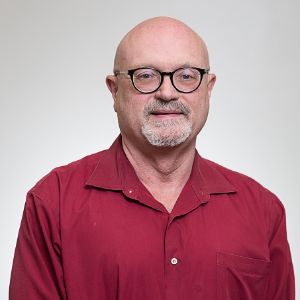
Charles Smith
Addictionologist
Doctorate in Osteopathic Medicine

Anthony Davis
Program Supervisor

David Galat
Clinical Operations Manager
Master's in Health Administration
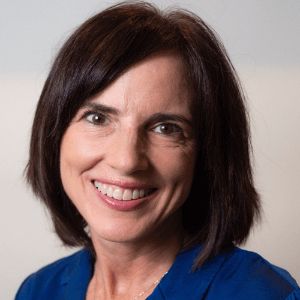
Susan O. Feldman
Director of Quality & Performance Improvement
MBA
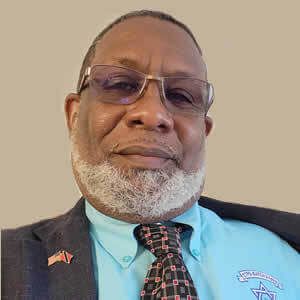
Andy Ansola
Salute to Recovery Group Facilitator
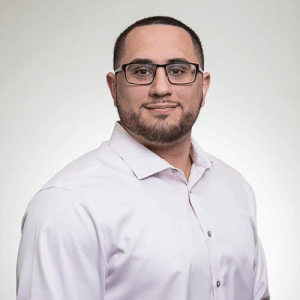
Thomas Pullman
Admissions and Transportation Manager

Oluwafunmilayo Shodeko
Clinical Manager, Residential Program
Your Care Options
Specializations
Alcohol
Using alcohol as a coping mechanism, or drinking excessively throughout the week, signals an alcohol use disorder.
Co-Occurring Disorders
A person with multiple mental health diagnoses, such as addiction and depression, has co-occurring disorders also called dual diagnosis.
Cocaine
Cocaine is a stimulant with euphoric effects. Agitation, muscle ticks, psychosis, and heart issues are common symptoms of cocaine abuse.
Drug Addiction
Drug addiction is the excessive and repetitive use of substances, despite harmful consequences to a person's life, health, and relationships.
Opioids
Opioids produce pain-relief and euphoria, which can lead to addiction. This class of drugs includes prescribed medication and the illegal drug heroin.
Veterans
Patients who completed active military duty receive specialized treatment focused on trauma, grief, loss, and finding a new work-life balance.
Who We Treat
Men and Women
Men and women attend treatment for addiction in a co-ed setting, going to therapy groups together to share experiences, struggles, and successes.
Veterans
Patients who completed active military duty receive specialized treatment focused on trauma, grief, loss, and finding a new work-life balance.
Treatment Services
Detox
Detox fully and safely removes toxic substances from the body, allowing the next steps in treatment to begin with a clean slate.
Residential
In a residential rehab program, patients live onsite, with access to daily treatment and 24-hour care. An average stay is 30-90 days.
Approaches
Spiritual Emphasis
Spirituality connects patients to a higher power and helps strengthen their recovery, hope, and compliance with other treatment modalities.
Evidence-Based
A combination of scientifically rooted therapies and treatments make up evidence-based care, defined by their measured and proven results.
Individual Treatment
Individual care meets the needs of each patient, using personalized treatment to provide them the most relevant care and greatest chance of success.
Personalized Treatment
The specific needs, histories, and conditions of individual patients receive personalized, highly relevant care throughout their recovery journey.
Twelve Step
Incorporating spirituality, community, and responsibility, 12-Step philosophies prioritize the guidance of a Higher Power and a continuation of 12-Step practices.
Therapies
1-on-1 Counseling
Patient and therapist meet 1-on-1 to work through difficult emotions and behavioral challenges in a personal, private setting.
Meditation & Mindfulness
A practiced state of mind that brings patients to the present. It allows them to become fully aware of themselves, their feelings, and the present moment.
Trauma-Specific Therapy
This form of talk therapy addresses any childhood trauma at the root of a patient's current diagnosis.
Mindfulness Therapy
This ancient practice can be mental, emotional, and even spiritual. In meditation, you focus your attention on the present moment without judgement.
Art Therapy
Visual art invites patients to examine the emotions within their work, focusing on the process of creativity and its gentle therapeutic power.
Family Therapy
Family therapy addresses group dynamics within a family system, with a focus on improving communication and interrupting unhealthy relationship patterns.
Life Skills
Teaching life skills like cooking, cleaning, clear communication, and even basic math provides a strong foundation for continued recovery.
Medication-Assisted Treatment
Combined with behavioral therapy, prescribed medications can enhance treatment by relieving withdrawal symptoms and focus patients on their recovery.
Conditions We Treat
Anger
Although anger itself isn't a disorder, it can get out of hand. If this feeling interferes with your relationships and daily functioning, treatment can help.
Anxiety
Anxiety is a common mental health condition that can include excessive worry, panic attacks, physical tension, and increased blood pressure.
Bipolar
This mental health condition is characterized by extreme mood swings between depression, mania, and remission.
Depression
Symptoms of depression may include fatigue, a sense of numbness, and loss of interest in activities. This condition can range from mild to severe.
Obsessive Compulsive Disorder (OCD)
OCD is characterized by intrusive and distressing thoughts that drive repetitive behaviors. This pattern disrupts daily life and relationships.
Post Traumatic Stress Disorder
PTSD is a long-term mental health issue caused by a disturbing event or events. Symptoms include anxiety, dissociation, flashbacks, and intrusive thoughts.
Stress
Stress is a natural reaction to challenges, and it can even help you adapt. However, chronic stress can cause physical and mental health issues.
Trauma
Some traumatic events are so disturbing that they cause long-term mental health problems. Those ongoing issues can also be referred to as "trauma."
Substances We Treat
Alcohol
Using alcohol as a coping mechanism, or drinking excessively throughout the week, signals an alcohol use disorder.
Benzodiazepines
Benzodiazepines are prescribed to treat anxiety and sleep issues. They are highly habit forming, and their abuse can cause mood changes and poor judgement.
Chronic Relapse
Consistent relapse occurs repeatedly, after partial recovery from addiction. This condition requires long-term treatment.
Co-Occurring Disorders
A person with multiple mental health diagnoses, such as addiction and depression, has co-occurring disorders also called dual diagnosis.
Cocaine
Cocaine is a stimulant with euphoric effects. Agitation, muscle ticks, psychosis, and heart issues are common symptoms of cocaine abuse.
Drug Addiction
Drug addiction is the excessive and repetitive use of substances, despite harmful consequences to a person's life, health, and relationships.
Ecstasy
Ecstasy is a stimulant that causes intense euphoria and heightened awareness. Abuse of this drug can trigger depression, insomnia, and memory problems.
Heroin
Heroin is a highly addictive and illegal opioid. It can cause insomnia, collapsed veins, heart issues, and additional mental health issues.
Psychedelics
Hallucinogenic drugs—like LSD—cause euphoria and increased sensory experiences. When abused, they can lead to depression and psychosis.
Languages
Aftercare
Care Designed for Your Needs
Personal Amenities
Amenities
Special Considerations
First Responders Program
Paramedics, police officers, firefighters, and others join in a specific First Responders program, usually focused on trauma, grief, and work-life balance.
Activities
Off-Site Activities

Learn More About the Center
Alcohol Addiction as a Family Disease
Explore how alcohol addiction affects entire families and why shared healing matters.
What to Expect in Rehab
Prepare for rehab by clarifying daily structure, support, and the recovery process.
What Families Need to Know
Understand treatment realities, boundaries, and ways to support lasting recovery.
Myths About Addiction
Learn about common addiction myths that prevent understanding, compassion, and effective treatment.
What people are saying
Treatment
4.7
Accommodations
4.4
Food & Nutrition
4.4
Value
4.5
Joe
Reviewed 03/09/24
Review from Rehabs.com
Teighlor
Reviewed 04/09/24
Review from Rehabs.com
Melissa
Reviewed 08/31/23
Review from Rehabs.com
Stephen
Reviewed 08/27/23
Review from Rehabs.com
Laura
Reviewed 08/08/23
Review from Rehabs.com





